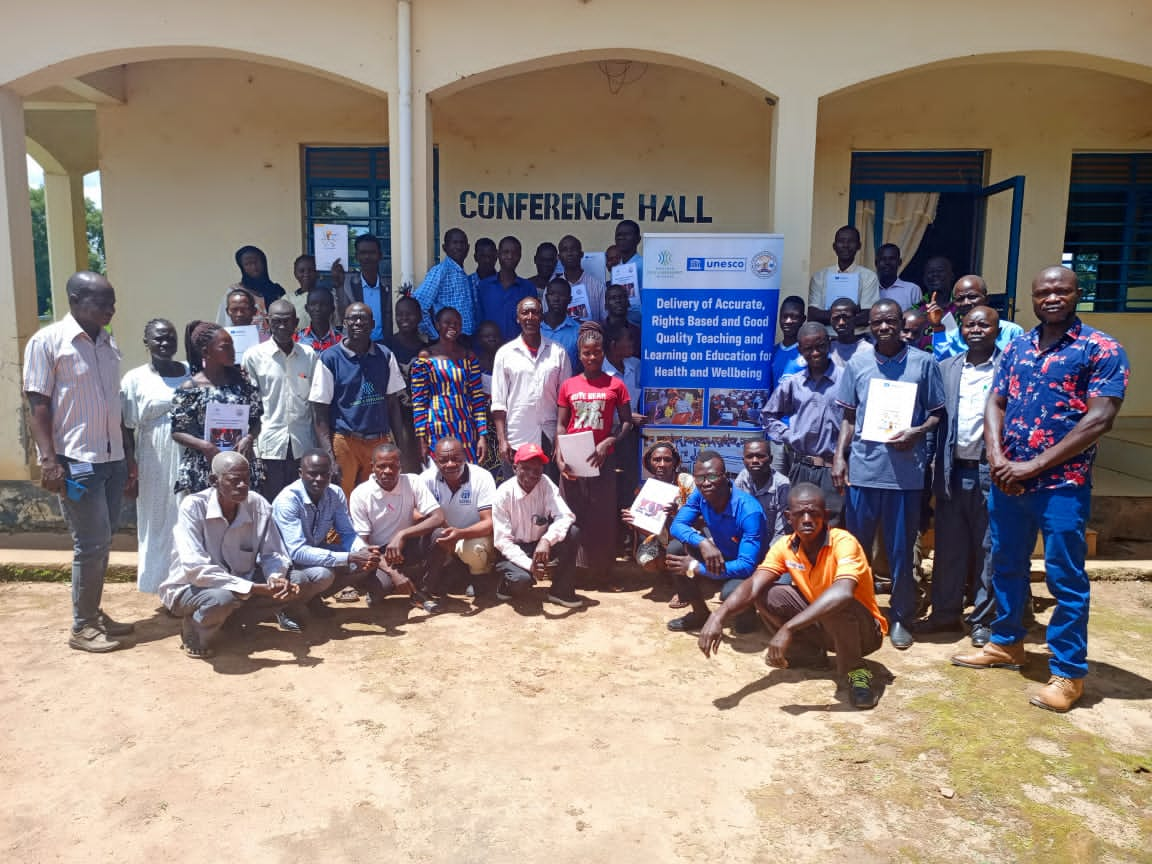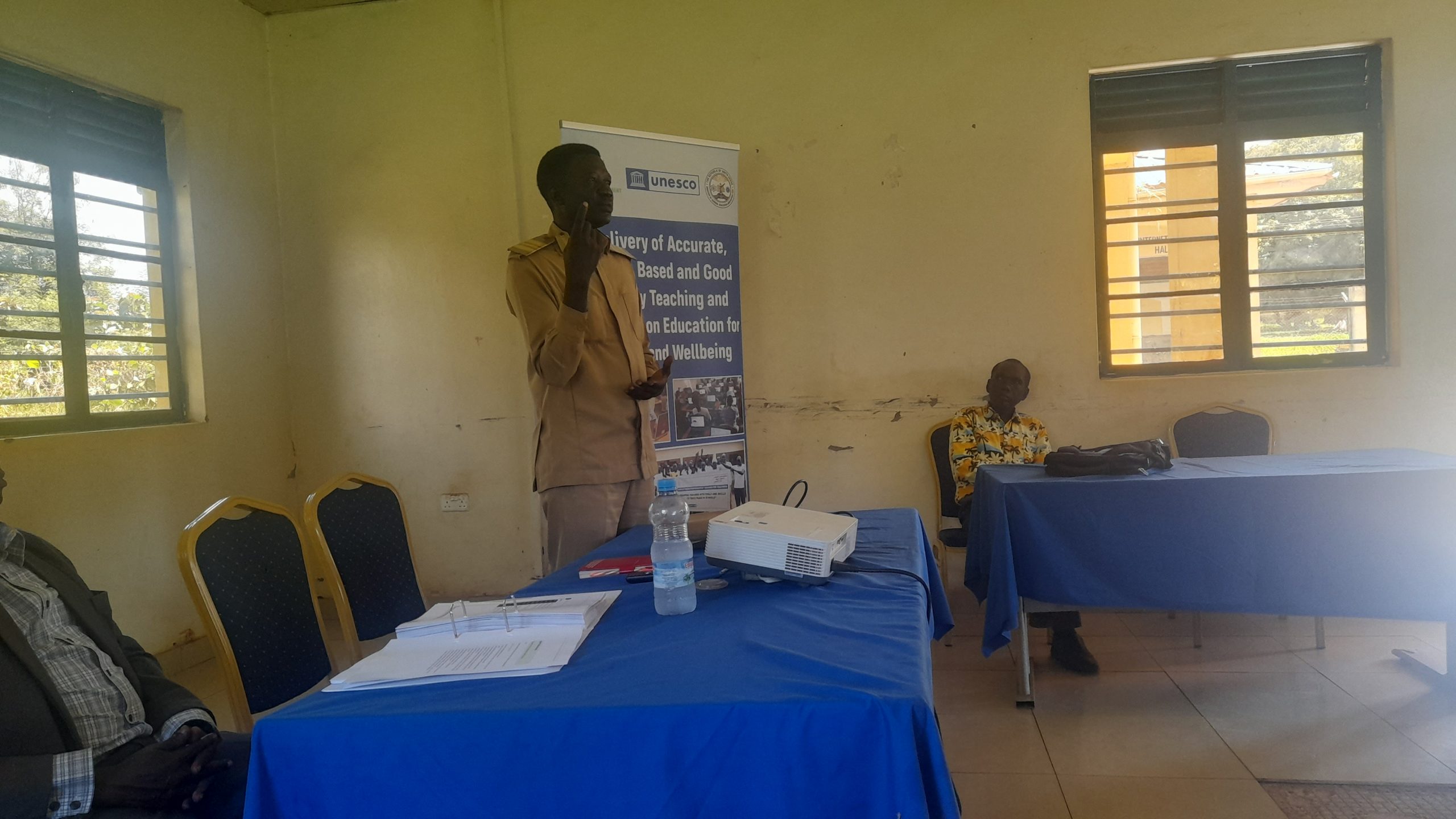December 19, 2024 – As a recently established State, South Sudan is a country where tradition and modernity are bound to clash around many societal issues if no proper interventions are undertaken. This is especially the case with many questions related to Sexual and Reproductive Health (SRH), which has, in turn, ramifications with regards to the definition of age and gender groups, including youth and women, making it a priority for WPDI. In October, the Women Resource Center in Maridi became a hub of transformative learning as our first training session on Comprehensive Sexuality Education (CSE) was conducted in partnership with UNESCO South Sudan. The event was attended by 46 teachers and 5 participants from the Youth Peacemaker training program, collectively dedicated to reshaping the narrative around sexuality education in South Sudan.

The training, led by Mr. Omwony Terensio, Coordinator for Training on Comprehensive Sexuality Education from the National Ministry of General Education and Instruction in Juba, spanned four days of intensive sessions. Aimed at delivering accurate, age-appropriate, and non-judgmental information, this initiative sought to address the often conflicting and harmful messages young people encounter from peers, media, and other sources.
The training underscored the importance of addressing a critical gap: the diminishing traditional systems of preparing young people for relationships and sexual life. Without adequate alternatives to guide them, many youths are left vulnerable to misinformation. Comprehensive Sexuality Education seeks to fill this void by balancing information with values, fostering healthy relationships, and equipping young people to make informed decisions.
South Sudan’s societal norms often regard discussions about sexuality as taboo. This cultural barrier compounds challenges like early marriages, which force many children, particularly girls, to abandon their education. Recognizing this, the training emphasized the role of parents, families, and educators in providing a foundation of care, information, and support. As Kamaladin Bashir Juma, Deputy Executive Director of Maridi County, stated in his opening remarks: “In Africa, especially in South Sudan, discussing sexuality with children is often considered taboo. However, this training comes at a crucial time, as many children are struggling with issues related to sexuality and relationships. Many of them are married off at a young age, which leads to dropping out of school. We will now become ambassadors for this important information in our communities.”

The program adopted a holistic approach, promoting collaboration among parents, educators, and governmental institutions. Teachers are envisioned as facilitators, not merely transmitters of information, using a learner-centered, rights-based pedagogy that engages students in meaningful ways. Rebecca Aniruno, a teacher and participant in the program, expressed her commitment to transforming the narrative: “We are going to change the narratives when it comes to sexuality in our schools and communities. We will teach our children to abstain from sexual behaviors until they are ready for marriage, and marriage comes after school.”
Emphasizing youth involvement, the program aims to encourage students to be active participants in their learning. Rather than passively receiving information, young people are encouraged to reflect upon their own attitudes and behaviors and make informed choices about their relationships and health.
With a focus on empowering young people to develop critical understanding, attitudes, and self-esteem, the training aims to create ripple effects across schools and communities. Teachers and Youth Peacemakers are now equipped to become catalysts of change in their regions. As one participant passionately reflected: “With the knowledge I’ve recently gained in comprehensive sexuality education, I aim to enhance young people’s understanding, attitudes, skills, and self-esteem. This empowerment will enable them to make responsible choices regarding relationships, sexuality, and sexual and reproductive health.”
The success of this program is a testament to the commitment of the funders, organizers, and participants who are invested in building a healthier, more informed future for South Sudan. By embracing conversations often deemed difficult, they are paving the way for a generation better prepared to navigate relationships and sexuality with confidence and respect.
In partnership with
